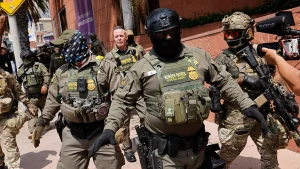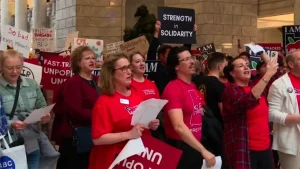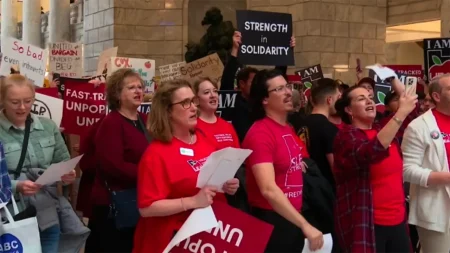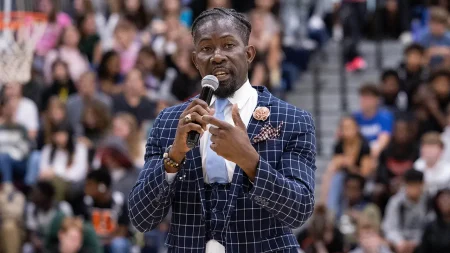Grief and Relief: Israel Confronts the Bittersweet Return of Hostages from Gaza
National Mourning Begins as Israel Receives the Fallen Among the Captives
In a somber development that has cast both light and shadow across Israel, authorities have confirmed the return of the bodies of 10 hostages from Gaza, marking a painful milestone in the ongoing conflict. The news triggered a complex emotional response across the nation—relief that loved ones had finally been returned home, intermingled with profound grief that they had not survived their captivity. For families who had maintained hope for months, lighting candles in windows and keeping empty chairs at dinner tables, the confirmation brought a devastating finality to their vigil.
“We waited 257 days to know something—anything—about my brother’s fate,” said Michal Levin, sister of one of the deceased hostages, her voice breaking during a press conference in Tel Aviv. “Now we face the unbearable task of burying him instead of welcoming him home.” The bodies were transferred through the Kerem Shalom crossing under international mediation, with forensic teams working quickly to confirm identities before notifying families. Military officials reported that preliminary examinations suggested some hostages had died during the initial October attacks, while others had succumbed during captivity. This grim revelation has intensified public scrutiny of both the hostage negotiations and the conditions under which captives were held.
Between Hope and Heartbreak: Communities Rally Around Affected Families
The return has transformed parts of Israel’s collective consciousness from anxious waiting to active mourning. In neighborhoods where yellow ribbons had symbolized hope for hostages’ safe return, memorial candles now flicker in growing numbers. Impromptu gatherings have formed in Tel Aviv’s Hostage Square, where photos of the missing have been displayed since October. “We’re experiencing what psychologists might call ambiguous loss,” explained Dr. Yael Cohen, a trauma specialist working with hostage families. “These families have been living in suspended animation—unable to grieve, unable to move forward. Now some face the painful clarity of confirmed loss, while others remain trapped in that terrible uncertainty.”
In Jerusalem’s Mahane Yehuda market, vendors lowered their voices when discussing the news, with many closing early in respect for the national mood. “There’s relief that some families can now perform proper burials according to our traditions,” said Moshe Abelman, who has dedicated a corner of his bookshop to literature supporting hostage families. “Yet there’s also anger—raw and justified—that these people were taken at all, that some didn’t survive to come home.” This duality of emotion has manifested in countless ways across Israeli society, from social media profiles changing to black mourning images to spontaneous memorials appearing outside the homes of the deceased. Community leaders have organized support networks for the affected families, providing everything from meal deliveries to psychological counseling as they navigate this traumatic transition.
Diplomatic Tensions and Renewed Urgency for Remaining Captives
The confirmation of deaths among the hostages has complicated an already fragile diplomatic landscape. International negotiators, who had been working toward a more comprehensive hostage release, now face heightened urgency and escalated demands from both Israeli officials and civilian advocacy groups. “This is no longer just about negotiation tactics—we are literally racing against time,” said former diplomat Avi Melamed, who has been analyzing the hostage crisis. “Every day matters for those still in captivity, as these returns have tragically confirmed.”
The Israeli government has faced renewed pressure to both intensify military operations and accelerate diplomatic efforts, a seemingly contradictory position that reflects the nation’s anguished ambivalence. Prime Minister’s office released a statement pledging “unwavering commitment to securing the return of all hostages—living or deceased—while holding those responsible for their deaths accountable under international law.” Meanwhile, families of those still missing have intensified their public campaigns, with some establishing permanent encampments outside government buildings. “My daughter remains there, and this news only confirms our worst fears about conditions,” said Eitan Berger, father of a 24-year-old hostage. “We cannot afford diplomatic patience or strategic waiting. Every hour matters.” The international community has responded with renewed calls for humanitarian access to remaining hostages, with the Red Cross requesting immediate medical evaluations of all those still held in Gaza.
The National Security Implications and Public Discourse
The confirmation of hostage deaths has reignited fierce debates about Israel’s security policies and military strategy. Defense analysts have pointed to the development as evidence supporting different and sometimes opposing approaches. “This tragic outcome reinforces the need for overwhelming military pressure to prevent hostage movement deeper into tunnel networks,” argued former military intelligence officer Dalia Rabin on a national news broadcast. Countering this view, peace activist Yonatan Shapira contended: “These deaths demonstrate precisely why a negotiated ceasefire is urgently needed—military escalation endangers the very hostages we’re trying to save.”
This tension has played out across Israeli media, with newspapers publishing competing analyses often on the same front page. The confirmation of deaths has also prompted security reassessments across communities that border Gaza, with many residents expressing renewed anxiety about return to their homes even as they mourn their former neighbors. “We lived with a theoretical understanding of the threats,” explained Sderot community leader Noga Elitzur. “Now we have concrete evidence of the unthinkable becoming reality.” The psychological impact extends beyond the border communities, with national trauma experts reporting increased anxiety symptoms across the general population following the announcement. This collective trauma has manifested in practical ways, with applications for firearm licenses increasing and community emergency response teams reporting record volunteer registrations. Security cabinet meetings have been extended and increased in frequency as officials grapple with the strategic implications of the hostage deaths, including how this development might influence future defense protocols and border security measures.
Finding Meaning in Mourning: How Israelis Process Collective Grief
As funeral arrangements proceed for the returned hostages, Israelis have begun the difficult process of integrating this loss into their national consciousness. Historians and sociologists note that societies experiencing prolonged conflict develop distinctive cultural mechanisms for processing grief. “Israel has unfortunately had to become adept at mourning,” observed cultural anthropologist Maya Harel. “We see this in everything from our memorial days to the way military cemeteries are designed as gardens of remembrance rather than fields of death.” This cultural capacity for meaningful mourning has been evident in the response to the returned hostages, with families requesting that memorial services focus not just on how their loved ones died but on how they lived.
The national grief has transcended political divisions that typically fragment Israeli society. At a memorial service in Haifa, political rivals sat together, momentarily setting aside deep ideological differences to honor the deceased. Religious leaders from across Judaism’s denominational spectrum have issued joint statements emphasizing unity in mourning. “There is no Orthodox or secular way to grieve these losses—there is only the Israeli way,” stated Rabbi David Stav in a widely shared video message. As Israel navigates this painful chapter, mental health professionals have emphasized the importance of acknowledging the complex emotions triggered by the hostages’ return. “We are experiencing what psychologists call ‘disenfranchised grief’—a mourning complicated by years of hope, by ongoing uncertainty about others, by anger at how preventable these losses seem in retrospect,” explained trauma specialist Dr. Ruth Halperin. “Recognizing the legitimacy of all these feelings is the first step toward national healing.” As funeral processions move through streets once filled with demonstrations demanding hostage releases, Israelis have begun the difficult transition from demanding their return to honoring their memory—while intensifying their commitment to securing the safety of those still held captive.










